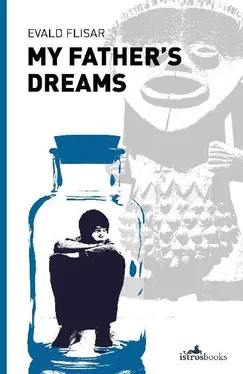But all this was only the stuff of my curiously repetitive dreams, which I faithfully recorded in my secret diary. The dreams were so frequent and my descriptions so elaborate that I soon filled the notebook and had to buy a new one, a red one this time, which I gave the title Dreams II . I never asked myself why I was making all those detailed notes, considering that I could never ever show them to anyone, certainly not to Father and least of all Mother. Nor did I read them myself, except every now and then to add a detail or two, for some things, strangely, I could only remember later.
Quite often I found that recording the dreams gave me more pleasure than the actual dream itself. Why it was so, and why the dreams had become such an obsession, and why occasionally I caught myself wishing they would become even more frequent, I could not tell. From time to time I fell pray to the haunting thought that Mother’s fears were coming true and that I was indeed slipping dangerously toward the edge of madness. As for Eve, after the event on the dam I did not dare approach her any more; I wouldn’t know what to say to her.
There was only one person I could confide my dreams to, and that person lived in the basement of the health centre where Father conducted his secret experiments. Because the door was not only locked, but padlocked as well, Father had no idea that I, too, had access to the kingdom he had created under the wooden floors of the surgery. There was an old stove in the cellar for which, before the installation of central heating, coal was needed, and coal used to reach the basement down a chute which, from the outside, had long ago been hidden from view by a confusion of brambles, while in the basement it was partly obscured by a pile of old furniture. Getting into the basement required no greater skill than squeezing through the brambles and sliding down the chute. Getting out required some ingenuity: putting a half-broken chair in front of the chute, climbing onto it, than climbing up the dusty chute using elbows and knees, taking care not to get scratched or too filthy in the process.
The basement was filled with so much rubbish that one could hardly move around. There was everything, from broken crutches and rusty surgical instruments to old, moth-eaten medical manuals, dusty files of patients long dead, and seemingly endless amounts of medicines which had passed their “use by” date. But the basement also contained other, less everyday objects. Screwed to the wall and reaching all the way to the ceiling were wooden shelves which contained, standing next to one another, round, rectangular and triangular glass jars with corks or aluminium lids, some no bigger than ten inches, others extending over two feet. In those jars, preserved in formaldehyde, were the trophies of God knows who’s surgical undertakings: an amputated child’s hand, a few appendices, a cut-off ear, a foot with crushed toes, a kidney, a pancreas and two excised tumours. Sitting at the bottom of one of the larger jars, resembling a small overturned canon on wheels, was a male sexual organ, amputated with both testicles.
My Father was not a surgeon, merely a general practitioner, but often, whether for his own pleasure or as a matter of urgency, he undertook work which, by all the rules of medical practice, he should have left to others. Even so, most of the preserved organs could not have been removed by him, for the health centre lacked the necessary equipment. He could only have cut them out of dead or dying people, something he would hardly have found a good reason to do. After all, floating in one of the jars was a human heart. But I never doubted that it was he who had handled most of the aborted embryos and dead-born foetuses which lined the longest shelf. There were at least twelve in the glass jars, and every so often they would be joined by a new one. Some were so small they resembled large tadpoles rather than early shapes of anything human; others already had eyes and beginnings of limbs, noses, ears, tiny fingers. Some were almost fully developed, prematurely born little people of recognizable sex, with eyes which, even behind closed lids, seemed to express something akin to astonishment.
Although they were all fascinating, there was one that I really liked. In fact, I liked him more than anything else in the world, including Father, whom I liked a lot. This particular foetus was more developed than any of the others, and had a larger than usual head. Although I knew that this was not possible, he seemed to be smiling and his frog-like eyes appeared to be half open. In a strange way he seemed almost alive. He was also the only one with a name; stuck to the jar in which he floated was a label on which someone had scrawled, “Abortus, the son of Mary and Joseph.”
Joseph, or Joe as he was known, was my Father. Mary was my Mother. There could be no doubt that Abortus was my dead-born little brother. It often seemed to me that there was a certain resemblance between us, especially around the mouth and the eyes. We seemed to be looking at the world in a similar way: shyly, with concealed wonder, yet stubbornly at the same time. Father and Mother never mentioned the possibility of my not remaining an only child. Nor did I know if Abortus inhabited Mother’s womb before or after me. This was something we never talked about. What was clear, however, was the fact that I could have had a brother. After a while I came to believe that I did have one, simply one that could not leave his little home. And because he could not, it was my brotherly duty to live part of my life for him.
The main reason I kept coming to the basement was to talk to Abortus and tell him what was happening in the world outside. The things we did. Because part of my life was his I always felt that whatever happened, happened to both of us. I would tell him how the physics teacher made fun of us in front of the whole class. How during a football match Luke deliberately aimed a kick at our shins. How we combed our hair with a comb we found lying on Katya’s table, and how she lifted the comb in the air so the whole of the class could see it, and shouted: “Does anyone have a strong disinfectant?” As long as I believed that half of my life belonged to Abortus I felt only half the anxiety I would have felt otherwise. Of course I also shared pleasant things with him. Whenever Minny smiled at me in the school corridor, or the headmaster said that if I had less imagination and a trifle more perseverance I would definitely be the star pupil, I did not keep this to myself. I shared it with my little brother as though it was meant for him anyway, and I was no more than a transmitting agent.
We communicated in a seemingly simple way: I would talk, and he would listen. He would respond in his own way. At first I would connect the barely noticeable changes in his expression with the light which was coming in through the window, and which shifted every time a cloud passed before the sun or the tree branches swayed in the wind. But gradually I began to see the almost imperceptible movement of shadow and light round his mouth and eyes as his way of responding to my words. Step by step, we developed a way of communicating which enabled us to exchange information and views on a number of things. In my loneliness there was no one I could talk to as openly as I could to my little brother. Talking to Father was interesting, but not always warm or intimate; it seemed to me that for anything like that Father simply couldn’t find the time. Which, of course, did not mean he didn’t love me. Talking to Mother was mostly a pain: because of her incessant worrying about the respectability of our family she would mostly instruct me what to do and what not to do, while I would defy her by remaining stubbornly silent. Only to Abortus could I talk as an equal, as one half to the other half; only together were we a complete person.
Читать дальше












